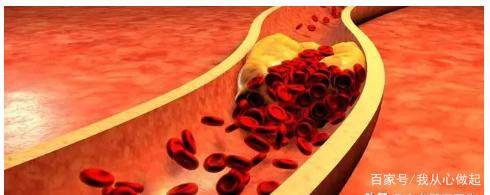My uncle asked me, he has high blood lipids, besides taking lipid-lowering medication, what else does he need to pay attention to in life?
I told my uncle: Not all high blood lipids require medication!
First, blood lipids are divided into cholesterol and triglycerides.
Second, if only triglycerides are elevated, it is not necessary to take medication just because triglycerides are high. Generally, it is recommended to consider taking medication to lower triglycerides only when triglycerides are above 5.65. Beet drugs are usually recommended. However, most of the time, long-term medication is not necessary. Once the triglyceride levels are lowered to normal, they can be controlled through a healthy lifestyle.
Third, if cholesterol is elevated, the main reference is the standard for low-density lipoprotein, and low-density lipoprotein has three different standards. For friends with cardiovascular problems, the focus is on the level of low-density lipoprotein, with a target of controlling it to below 1.8mmol/L being optimal, the lower the better. For those without cardiovascular diseases but classified as high-risk after risk assessment, the target for low-density lipoprotein control is below 2.6mmol/L. For those at medium to low risk, controlling low-density lipoprotein levels to 3.4mmol/L is sufficient. However, for those with no risk factors but elevated low-density lipoprotein, it is generally recommended to start taking lipid-lowering medication when low-density lipoprotein is above 4.9, with statins being the primary choice.
Fourth, if both cholesterol and triglycerides are elevated, it is necessary to weigh which one is higher, which one is more important, and choose which one to control. It is not recommended to use two lipid-lowering medications simultaneously, as it may increase the side effects of the drugs.
My uncle found what I said to be quite complicated, he sent me the test report and asked me what to do. Upon seeing that triglycerides were at 4.5, I said, there is no need to take medication yet.
Just live a healthy life:
Regardless of which blood lipid is elevated, a healthy lifestyle should be the foundation, with healthy eating being fundamental:
In general, high-fat foods, even high-salt and high-sugar foods, are the foundation of high blood lipids. Specifically, fried foods, fatty foods, fatty meats, refined grains, and others can elevate triglycerides. Foods that cause high cholesterol mainly include three aspects: excessive saturated fatty acids, such as fatty meats, animal oils, butter pastries, palm oil; high cholesterol content, such as animal organs, fish roe, crab roe, etc.; trans fatty acids, such as fried foods, etc. Excessive consumption of these foods can raise cholesterol and low-density lipoprotein.
Therefore, strict control of these foods is necessary. Relatively healthy foods that can help lower cholesterol are coarse grains, vegetables, fruits, small amounts of nuts, fish, and other foods. For elevated triglycerides, most cases can be improved through dietary adjustments; however, for elevated cholesterol and low-density lipoprotein, it is difficult to achieve normalization solely through dietary changes. It requires a combination of medication to achieve normal blood lipids.
In addition to healthy eating, alcohol should be avoided, as heavy drinking itself can raise blood lipids, and during high triglycerides, alcohol consumption can increase the risk of acute pancreatitis.
In addition to diet and alcohol, regular exercise is essential. It is generally recommended to keep one’s heart rate at a level of 170 minus one’s age during exercise, as this type of exercise helps control blood lipids and strengthens cardiovascular function.
If taking lipid-lowering medication:
1. Pay attention to rechecking the four lipid indicators to see if they meet the standards, remember the three standards for low-density lipoprotein;
2. Monitor blood sugar, creatine kinase, liver function, and look out for any side effects of the medication. If side effects occur, contact a doctor promptly!
In conclusion, not all high blood lipids require medication; taking medication is not a cure-all, a healthy lifestyle is the foundation, and monitoring is essential!


